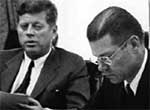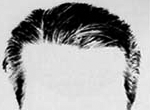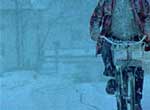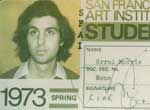I have often dreamed of my own version of the Great Books. No Plato, no Aristotle... Borges in his collection of non-fiction essays describes his "perfect" library - a library of many, many books I had never heard of, but subsequently, I have tried to read. Would I have read William Beckford's Vathek without the encouragement of Borges?
Years ago, I was rummaging around in the University of Wisconsin library. As I walked into the stacks, immediately on the left, there was a case of books by Eden Phillpots. Maybe a hundred or more novels. Eden Phillpots? Who in hell is Eden Phillpots? (This was before "Google.") I asked quite a number of people. No one had heard of him. I checked out The Red Redmaynes, among other works in the Phillpots canon. It was fabulous. Thirty years later, I found The Red Redmaynes on Borges's list. It is no. 39.
For me, the perfect work of art has to have three basic ingredients - sick, sad, and funny - in equal measure. It's like the vital humors. Too much of one, too little of another can spoil the end product. So first of all, NO books with happy endings. Jane Austen in particular. How dare she? And to do it again and again and again and again. I look forward to the fifteenth PBS/BBC remake of Pride and Prejudice. NOT.
So here's my list of my most influential and important books.
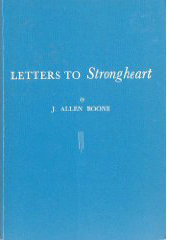 J. Allen Boone, Letters to Strongheart. Forty some letters written to a dead dog. Strongheart was one of the first animal movie stars. Pre-Rin-Tin-Tin. He was a screen legend. In Brawn of the North there is a close-up in which Strongheart cries following the death of his master. Woe to the one who believes those weren't real tears. I thought that no one else knew about this book, and then in a conversation with my friend Susan Orleans (who is writing the definitive work on Rin-Tin-Tin - I think it's part of an American Masters series), we realized that we both know and love - love, love, love - this book. What deeper or more satisfying relationship can you imagine than one with a dead dog? Particularly a dead dog that you never met in real life? (I like dog stories, but please Mr. Steinbeck, no more travelogues with the poodle.)
J. Allen Boone, Letters to Strongheart. Forty some letters written to a dead dog. Strongheart was one of the first animal movie stars. Pre-Rin-Tin-Tin. He was a screen legend. In Brawn of the North there is a close-up in which Strongheart cries following the death of his master. Woe to the one who believes those weren't real tears. I thought that no one else knew about this book, and then in a conversation with my friend Susan Orleans (who is writing the definitive work on Rin-Tin-Tin - I think it's part of an American Masters series), we realized that we both know and love - love, love, love - this book. What deeper or more satisfying relationship can you imagine than one with a dead dog? Particularly a dead dog that you never met in real life? (I like dog stories, but please Mr. Steinbeck, no more travelogues with the poodle.)
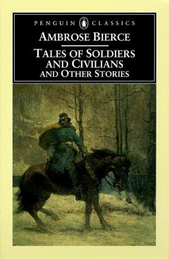 Ambrose Bierce, Tales of Soldiers and Civilians, the greatest American writer, with the possible exception of Poe and Nathanael West. Bierce had a simple idea: Life is a grotesque dream, interrupted by death. Irony, fatality, and an implacable sense of the futility of it all. What's there not to like? (Chickamauga may be only a couple of pages in length, but it is the greatest American short-story.)
Ambrose Bierce, Tales of Soldiers and Civilians, the greatest American writer, with the possible exception of Poe and Nathanael West. Bierce had a simple idea: Life is a grotesque dream, interrupted by death. Irony, fatality, and an implacable sense of the futility of it all. What's there not to like? (Chickamauga may be only a couple of pages in length, but it is the greatest American short-story.)
Louis Ferdinand Celine, The Terrible Story of Philippe-Ignace Semmelweiss. Supposedly, this was Celine's doctoral dissertation. And in my opinion his greatest work. Greater than Journey to the End of the Night and Death on the Installment Plan. And it's fact based. Or so it seems. Semmelweiss was a pre-Pasteur ob-gyn guy. He angered the medical establishment by suggesting surgeons should wash their hands after performing autopsies and before examining pregnant women. At the end Semmelweiss, who is barred from practicing medicine - in effect, from saving lives - gashes himself with a scalpel and dips his arms in the purulence of a corpse. He proves his point - disease is transmitted by direct contact with "germs" - and dies in agony. Celine helpfully points out, "He died because he loved mankind too much." It's Christianity without the hope.
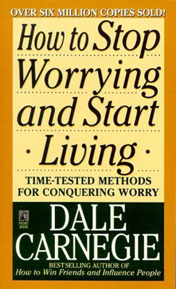 Dale Carnegie, How to Stop Worrying and Start Living. Ha, ha. I bet you thought I was going to mention the other one. A pale comparison to this work of genius. I dare anyone to read it without an immediate and overwhelming desire to open up your veins in the tub. It has perhaps my favorite poem, although I have to confess a fondness for the poetry of Yeats, Robert Louis Stevenson and Blake. Here's the poem:
Dale Carnegie, How to Stop Worrying and Start Living. Ha, ha. I bet you thought I was going to mention the other one. A pale comparison to this work of genius. I dare anyone to read it without an immediate and overwhelming desire to open up your veins in the tub. It has perhaps my favorite poem, although I have to confess a fondness for the poetry of Yeats, Robert Louis Stevenson and Blake. Here's the poem:
Two men looked out from prison bars,
One saw sand, the other, stars.
Russell A. Jones, Self-fulfilling Prophecies. I have found that self-fulfilling prophecies are the only kind of prophecy that is really reliable. The book occupies a position of respect on my shelves. I knew years ago that some day I would have a book with that title in my library.
Richard B. Sewall, Short Stories for Study. Richard Sewall was a professor at Yale. He was an Emily Dickenson expert, and the author of several books about Dickenson and her poetry, as well as a remarkable book, Visions of Tragedy. We used his collection of short stories in my senior-year English class. It changed my life. Bartleby the Scrivener, Gooseberries, The Great Wall of China, Mario and the Magician, The Bear... His son was a friend of mine at the Putney School. We're still friends.


